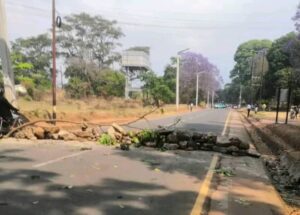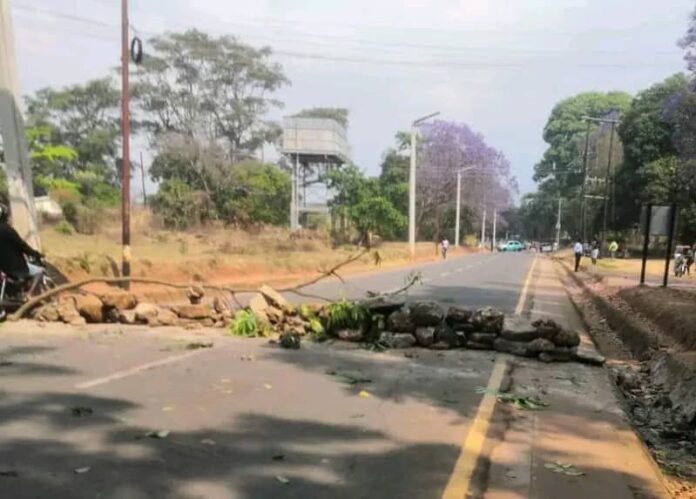By Burnett Munthali
Students at the University of Malawi (UNIMA) in Zomba have taken to the streets today to demonstrate against the recently introduced K200,000 fee for teaching practice.
Reports indicate that the students consider the newly imposed charge unreasonable, especially when combined with the controversial introduction of a Semester Nine.
The proposed fees have sparked anger and concern among the student body, with many arguing that the added financial burden is unfair in Malawi’s current economic climate.

According to sources, UNIMA Student Council President Innocent Mwangende Chisi assured students that discussions with the university administration had been held and that a positive outcome was expected.
Despite this assurance, students insist that only an official written communication from the university principal will convince them of any resolution.
The demand for formal confirmation reflects deep mistrust among students, who feel previous promises made by authorities have not always been honored.
Protesters argue that higher education should be accessible and affordable, warning that the new fees could push many students out of the system and further widen inequalities.
The demonstration underscores growing tensions between the student community and the university administration over fees, transparency, and communication.
As the protest continues, pressure is mounting on UNIMA leadership to respond decisively and address student grievances before the situation escalates further.
*Background: Teaching Practice and the semester nine debate*
At UNIMA, teaching practice is a mandatory component of training for education students, designed to provide hands-on classroom experience in secondary schools across the country.
Traditionally, teaching practice has been funded largely by the university, with minimal costs falling on students, since it forms part of their academic requirement rather than an optional program.
However, the introduction of the K200,000 fee marks a major shift in policy, effectively transferring the financial responsibility to students themselves.
This policy change comes at a time when many students are already struggling with tuition fees, accommodation, and basic living costs, making the new fee particularly contentious.
Compounding the frustration is the introduction of a so-called “Semester Nine,” an additional semester beyond the usual academic cycle that students are required to complete.
Critics argue that Semester Nine lengthens the duration of study unnecessarily and increases financial strain, as students must pay for extra fees, accommodation, and upkeep during that period.
The combination of Semester Nine and the new teaching practice fee has fueled accusations that the university is commercializing education at the expense of poor and hardworking students.
For many, the ongoing protests represent not just opposition to the K200,000 fee, but also a larger struggle over the direction of higher education policy in Malawi.



